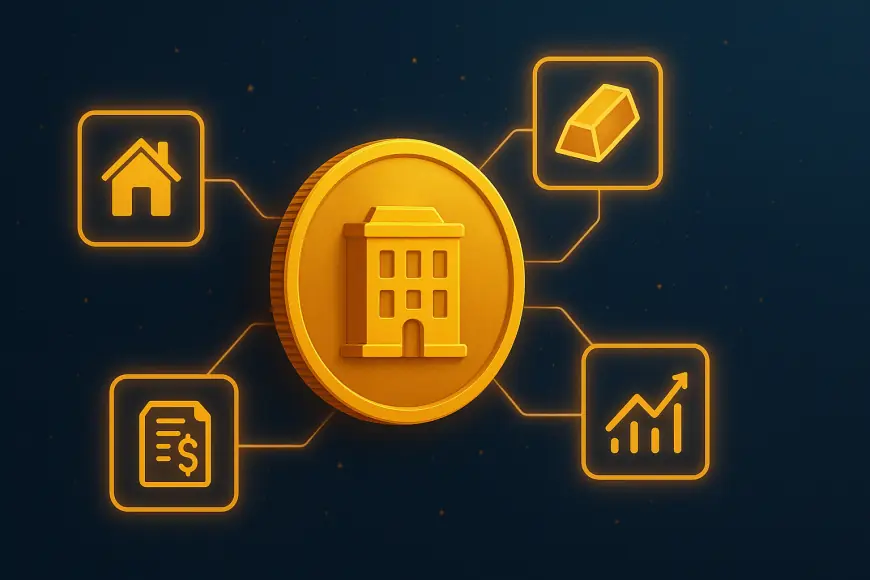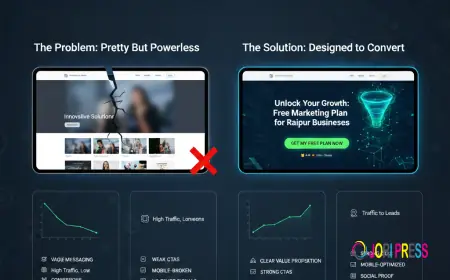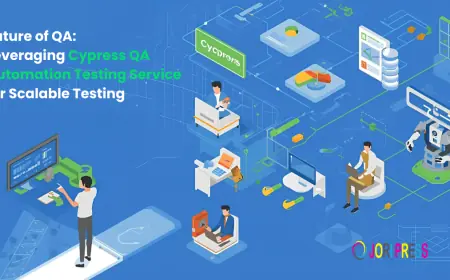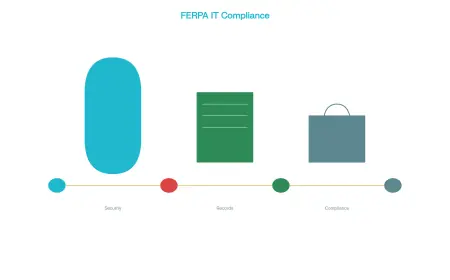Cryptocurrency Development Use Cases: From Banking to Gaming

Cryptocurrencies are no longer just speculative assets. What began as an experimental concept with Bitcoin has transformed into a thriving digital economy backed by sophisticated development processes. Today, cryptocurrency development powers multiple industries, reshaping financial systems, supply chains, entertainment platforms, and even government infrastructure. Businesses and individuals are beginning to recognize that cryptocurrencies are more than just an alternative form of money; they represent programmable assets with limitless use cases.
One of the strongest signs of maturity in this space is the way cryptocurrencies are being adapted into real-world applications. From banking and payments to gaming and virtual economies, cryptocurrency development is driving innovative use cases that bridge technology with mainstream adoption.
The Foundation of Cryptocurrency Development
Before exploring its use cases, it’s important to understand what cryptocurrency development entails. At its core, cryptocurrency development involves creating digital assets secured by cryptographic techniques and powered by decentralized networks like blockchain. Developers work on designing tokens, consensus mechanisms, wallets, and transaction systems that ensure security, transparency, and efficiency.
Modern cryptocurrency development extends beyond simply creating coins. It includes designing smart contracts, enabling interoperability across blockchains, developing custom protocols, and ensuring compliance with regulations. This technical foundation makes it possible for industries to adopt cryptocurrencies for practical purposes, rather than limiting them to speculative trading.
Transforming Banking and Payments
The most prominent use case for cryptocurrency development lies in the financial sector. Traditional banking systems often involve slow transactions, high fees, and geographical limitations. Cryptocurrency development has disrupted these inefficiencies by enabling instant, borderless, and low-cost transfers.
Banks and fintech startups are experimenting with cryptocurrency-powered payment systems to streamline cross-border transactions. For example, remittance services can integrate cryptocurrency wallets to help migrant workers send money to their families without relying on expensive intermediaries. Stablecoins, developed to maintain a fixed value, are playing an even bigger role by providing digital equivalents of fiat money with faster settlement times.
Additionally, central banks around the world are exploring central bank digital currencies (CBDCs). Although technically different from decentralized cryptocurrencies, CBDCs borrow heavily from cryptocurrency development models, particularly in terms of security and blockchain architecture. This development signals the integration of cryptocurrency principles into mainstream monetary systems.
Cryptocurrency in E-Commerce and Retail
The retail industry is another space where cryptocurrency development is making significant strides. Businesses are increasingly integrating cryptocurrency payment gateways, allowing consumers to use Bitcoin, Ethereum, or other digital assets for everyday purchases. Development efforts in this sector focus on building user-friendly wallets, ensuring security against fraud, and enabling seamless merchant adoption.
The ability to bypass traditional payment processors reduces transaction costs for businesses and gives customers more flexible payment options. Furthermore, cryptocurrency loyalty programs are beginning to emerge, allowing companies to issue tokenized rewards that can be traded or redeemed across multiple platforms.
As e-commerce expands globally, cryptocurrency development offers a way to support financial inclusion by enabling shoppers from countries with limited banking access to participate in the digital economy.
Enhancing Gaming and Virtual Economies
Gaming is perhaps one of the most exciting frontiers for cryptocurrency development. With the rise of play-to-earn models, non-fungible tokens (NFTs), and blockchain-based gaming platforms, developers are creating new ways for players to monetize their time and assets.
In-game currencies, traditionally limited to specific platforms, are now being developed as cryptocurrencies with real-world value. Players can trade digital assets like skins, characters, or weapons across marketplaces, thanks to the secure and verifiable nature of blockchain technology.
Cryptocurrency development has also enabled the rise of decentralized autonomous organizations (DAOs) in gaming communities. Gamers can now participate in governance, voting on updates or in-game rules using governance tokens. This creates an entirely new level of engagement, where players not only enjoy the games but also help shape their evolution.
The potential here extends beyond gaming entertainment. Virtual economies powered by cryptocurrencies are laying the foundation for the metaverse, where digital ownership, social interactions, and real-world commerce converge.
Supply Chain and Logistics
While banking and gaming take the spotlight, cryptocurrency development has also entered the supply chain and logistics industry. Tokenized assets are used to represent goods as they move across global supply chains, providing transparency and accountability.
For example, a token can be developed to represent a shipment of raw materials. Each transaction, from the supplier to the manufacturer to the distributor, can be recorded on a blockchain ledger. This makes it easier to track goods, prevent counterfeiting, and ensure ethical sourcing.
By integrating cryptocurrencies into supply chain management, businesses can automate payments based on delivery confirmations, reducing disputes and improving efficiency. This use case demonstrates how cryptocurrency development goes beyond finance, applying decentralized systems to real-world problems.
Real Estate and Tokenized Assets
Cryptocurrency development has also given rise to asset tokenization, where physical assets like real estate are divided into digital tokens. These tokens can be bought, sold, or traded on blockchain-based platforms, opening up investment opportunities to a broader audience.
Traditionally, real estate investment requires large capital, but tokenization enables fractional ownership. For instance, an apartment building can be tokenized into hundreds of cryptocurrency units, allowing small investors to purchase a fraction of the property and earn rental income.
The same principle applies to art, collectibles, and intellectual property. Developers are creating secure token issuance platforms, ensuring compliance with legal frameworks while unlocking liquidity in traditionally illiquid markets.
Government and Public Services
Governments are also beginning to adopt cryptocurrency-inspired solutions for public services. While the development of central bank digital currencies is one example, cryptocurrency systems are being used in areas such as voting, identity verification, and welfare distribution.
For example, blockchain-based voting systems use cryptographic principles to ensure transparency and prevent tampering. Cryptocurrency wallets can also be integrated into welfare programs to deliver subsidies directly to beneficiaries, eliminating corruption and delays.
These developments highlight how cryptocurrency development is influencing governance and promoting efficiency in public administration.
Healthcare and Data Security
Healthcare is another sector leveraging cryptocurrency development, particularly for secure data management. Medical records are highly sensitive, and traditional systems are often vulnerable to breaches. Cryptocurrency development provides cryptographic security measures to ensure that patient data remains private yet accessible to authorized parties.
Some projects are experimenting with tokenized health incentives, rewarding patients with tokens for maintaining healthy habits or sharing anonymized data for research. These tokens can then be exchanged for services, medications, or other benefits.
By merging healthcare with cryptocurrency development, the industry can foster trust, enhance data security, and encourage healthier lifestyles.
Energy and Sustainability
A growing number of cryptocurrency development projects focus on energy efficiency and sustainability. Green cryptocurrencies are being designed to incentivize eco-friendly practices, such as reducing carbon footprints or supporting renewable energy initiatives.
For instance, tokens can be developed to represent carbon credits, which companies can trade to offset emissions. Similarly, renewable energy producers can tokenize electricity, allowing consumers to directly purchase clean energy through decentralized marketplaces.
These applications demonstrate how cryptocurrency development can align financial incentives with sustainability goals, creating positive environmental impact.
The Future of Cryptocurrency Development Use Cases
The diversity of use cases shows that cryptocurrency development is not restricted to financial speculation. Its applications span across industries, creating tangible solutions for age-old problems. As regulations mature and technology advances, these use cases will likely expand further.
Developers are increasingly focused on scalability, interoperability, and compliance, ensuring that cryptocurrency-powered systems can integrate with existing infrastructures. This trend will accelerate the mainstream adoption of cryptocurrencies, making them a fundamental part of daily life.
Conclusion
Cryptocurrency development has moved far beyond the creation of digital coins. It has become a transformative tool for innovation across industries such as banking, gaming, supply chain, healthcare, real estate, and government services. Each use case demonstrates the flexibility and potential of cryptocurrencies to redefine how we exchange value, secure data, and interact with technology.
From powering borderless payments to enabling virtual economies in gaming, cryptocurrency development is reshaping modern industries in profound ways. The momentum shows no signs of slowing down, making it clear that cryptocurrencies are here to stay—not just as speculative assets, but as powerful enablers of real-world progress.
What's Your Reaction?
 Like
0
Like
0
 Dislike
0
Dislike
0
 Love
0
Love
0
 Funny
0
Funny
0
 Angry
0
Angry
0
 Sad
0
Sad
0
 Wow
0
Wow
0




















































